Redditor Asks If It's Wrong For Failing To Hide How Disgusted They Are Of Their Friend's Dog Breed
The perception that something is offensive, poisonous, or contaminated is the sole cause of disgust. Our bodily senses (sight, smell, touch, sound, and taste), other people's behavior and appearance, and even concepts can make us feel repulsed.
Some things that make people feel disgusted are present everywhere, while other things are much more culturally and personally specific. One evolutionary advantage of disgust is that it keeps us away from or gets rid of things that might be harmful or dangerous, keeping us secure and healthy.
The OP in today's story is someone who is disgusted by certain breeds of dogs, particularly Maltese and Shih Tzu dogs. The OP admits that they are living beings and deserve love, but they just gross them out so badly.
Their crusty eyes and dirty white fur are some of the reasons given by the OP for disliking such dogs. Unfortunately for the OP, the friend got a dog who fits into this category, as the OP defined it as "a white, long-haired dog with crusty eyes."
It's as if the dog knows the OP has an aversion to her because she’s always trying to jump on the OP and get their attention, but she isn't receiving it. Keep reading to learn how the friend had to confront the OP about the way his dog was treated.
The title

They are living beings and they deserve love, but they just gross the OP out so badly.
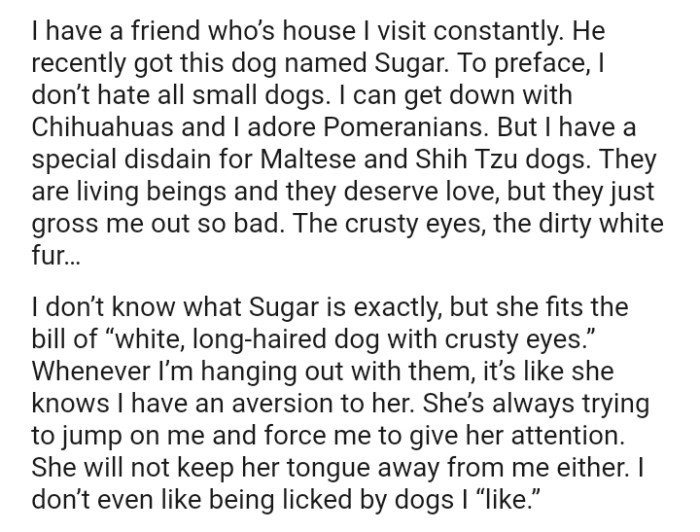
The OP doesn’t think it sounds sincere, but they feel like they're making an effort
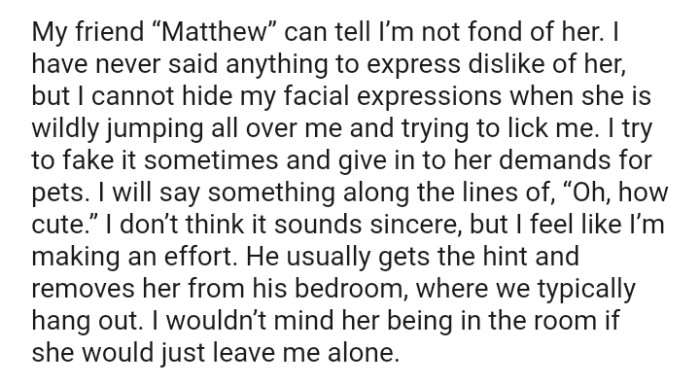
Understanding the Roots of Disgust
Disgust is a complex emotion that often reflects deeper psychological and cultural influences. Dr. Laura D. Smith, a psychologist at Stanford University, explains that disgust can be a learned response, shaped by cultural norms and personal experiences. Research shows that our emotional responses to specific dog breeds may also be influenced by societal stereotypes, which can be both harmful and misleading.
When individuals express disgust toward certain breeds, it can stem from misconceptions that are perpetuated by media and social narratives, rather than an objective assessment of the animals themselves.
He doesn’t think it’s fair that Sugar has to leave his room when the OP comes over
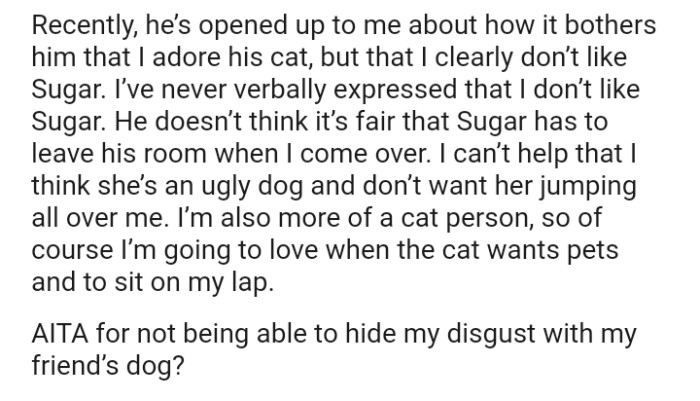
In this story, the OP only dislikes certain breeds of dogs, and that is what Redditors tackled. Below are some of their comments.
The crusty eyes are your friend's fault

It can't go around jumping on people

Studies in emotional psychology indicate that feelings of disgust are often tied to moral judgments and personal values. When a person states they find a particular breed 'gross,' it can reflect their underlying beliefs about that breed's behavior or treatment in society. This is consistent with findings from the Journal of Abnormal Psychology, which highlight how our emotional responses are often intertwined with our value systems.
Consequently, addressing these feelings requires a careful examination of one's biases and assumptions about animals.
You are allowed to have your own likes and dislikes
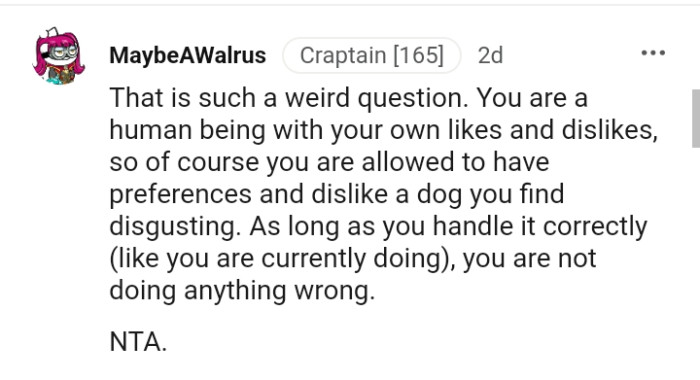
It's not as if you're demanding
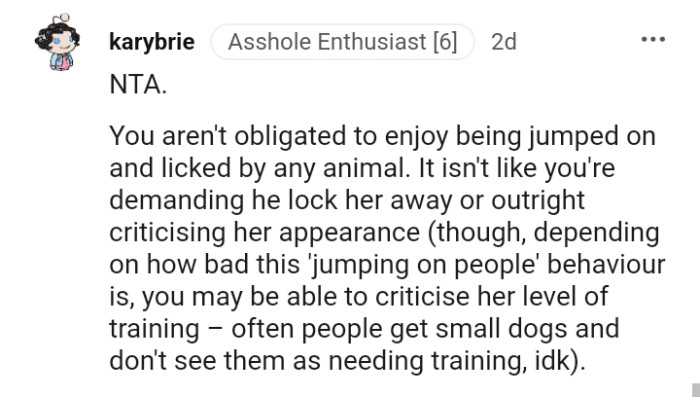
It is really his lack of dog training

Reframing Perspectives on Animal Breeds
To mitigate feelings of disgust, individuals can benefit from exposure to positive narratives and experiences related to the breeds they find off-putting. For example, volunteering at shelters or engaging with responsible breed-specific communities can help foster empathy and understanding. Research suggests that exposure to positive experiences can reshape negative perceptions and lead to increased emotional tolerance.
Additionally, educational resources that emphasize the importance of responsible breeding and training can help shift perspectives toward more compassionate views.
This Redditor knows a lot of people who have a problem with pets
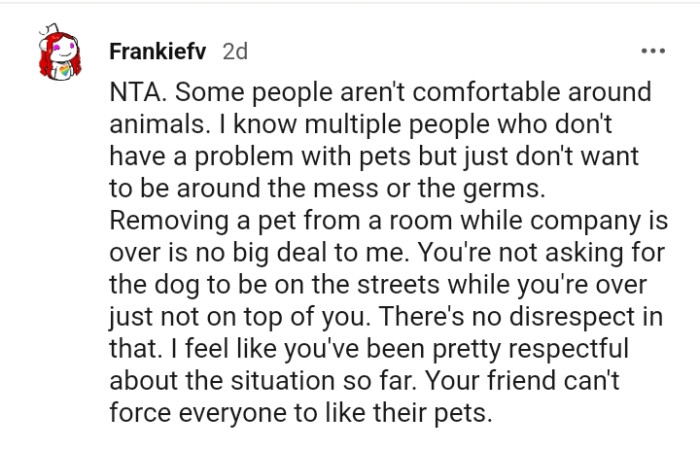
This is easy to explain to your friend
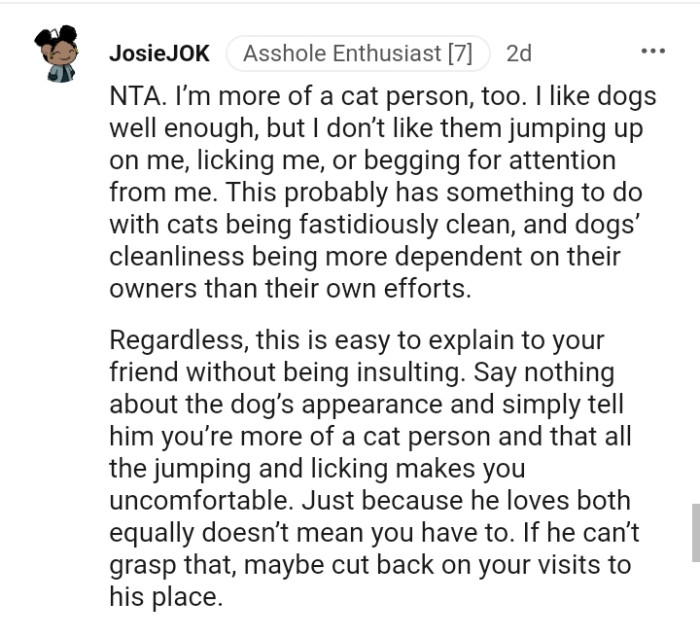
This Redditor is telling the OP what to say
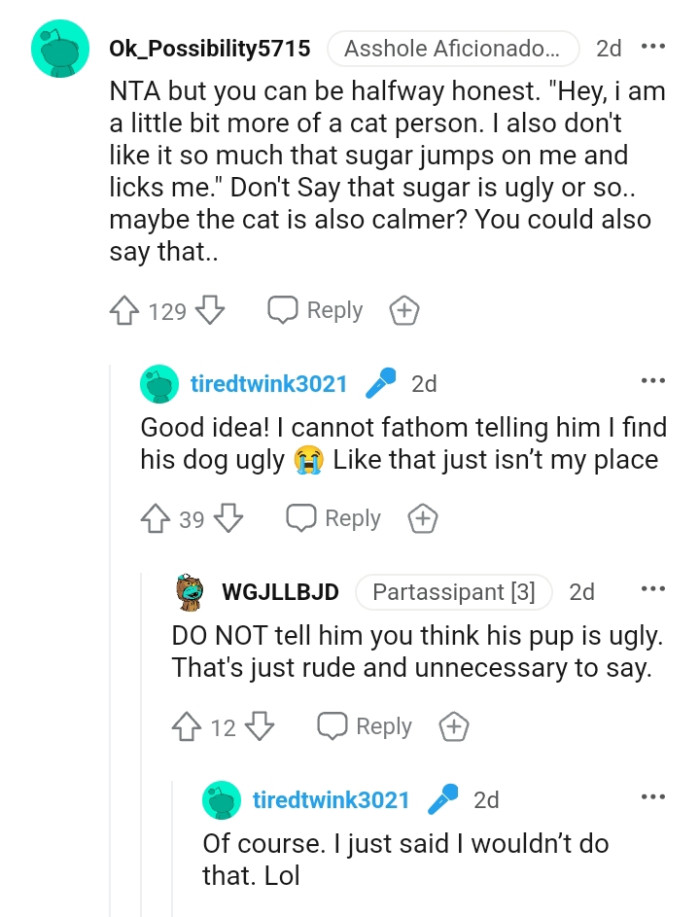
Moreover, understanding the psychological principle of cognitive dissonance can play a crucial role in addressing these feelings. When one's values about animal welfare conflict with feelings of disgust towards certain breeds, it creates discomfort. By actively working to resolve this dissonance—such as focusing on the dog's individual temperament rather than breed stereotypes—individuals can find a more harmonious perspective.
This approach aligns with findings from the American Psychological Association, which highlight the importance of reconciling conflicting beliefs for emotional well-being.
That would annoy this Redditor too
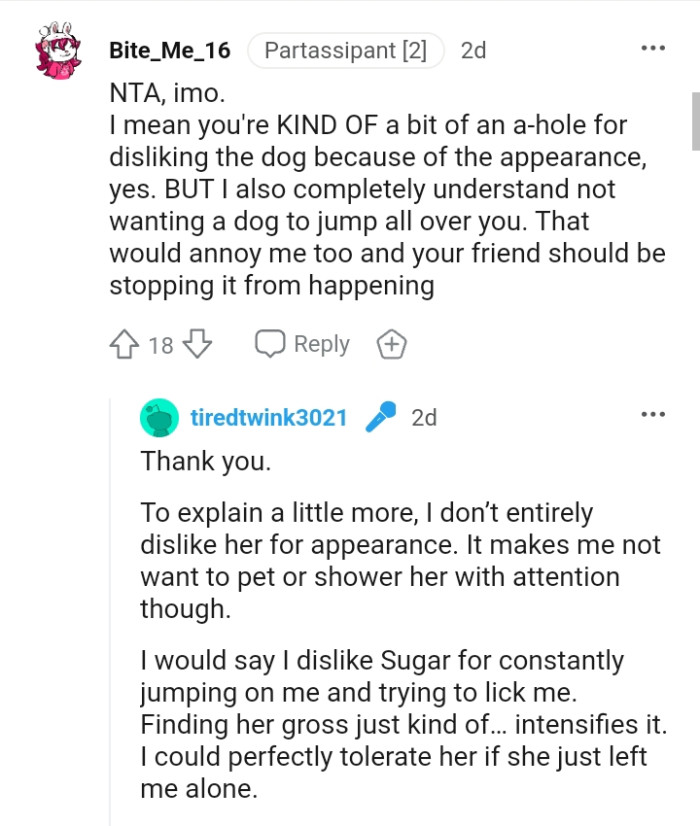
You are actually being considerate
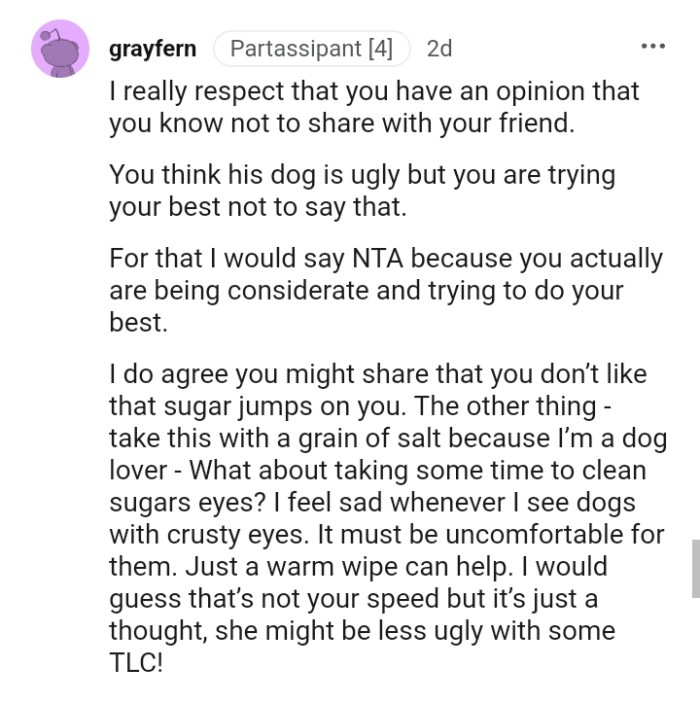
The dog doesn't care what you think about it
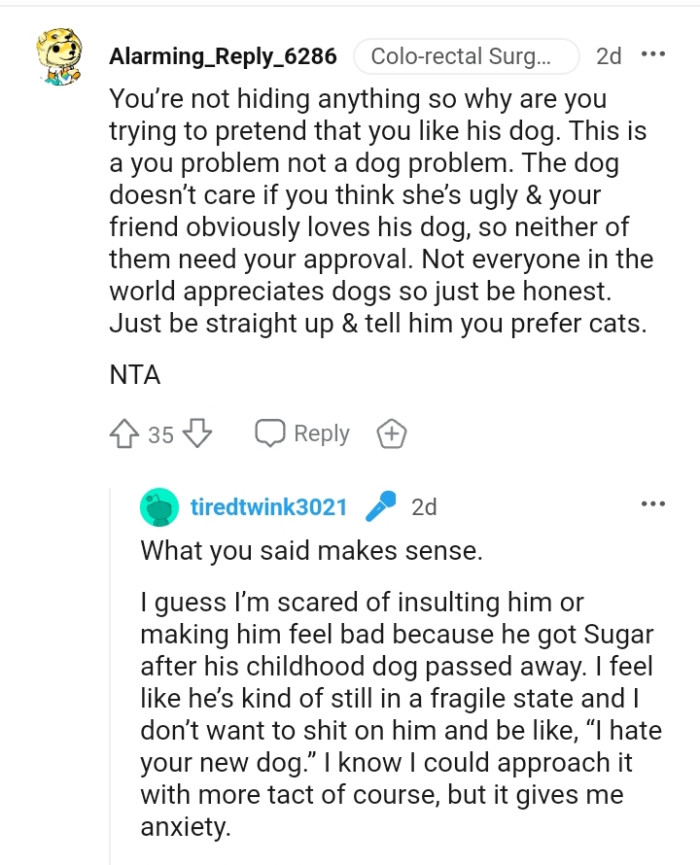
Developing Emotional Flexibility
Practicing emotional flexibility involves recognizing and adjusting our responses to our feelings. For instance, when confronted with disgust, individuals can pause to reflect on the origin of those feelings and whether they are justified. Engaging in mindfulness practices can enhance emotional awareness and provide tools for regulating responses. Research published in the Journal of Personality and Social Psychology shows that mindfulness can significantly reduce negative emotional reactions.
By fostering an understanding of where our feelings come from, we can work toward more compassionate interactions with all living beings.
There are dogs with extra disgusting features
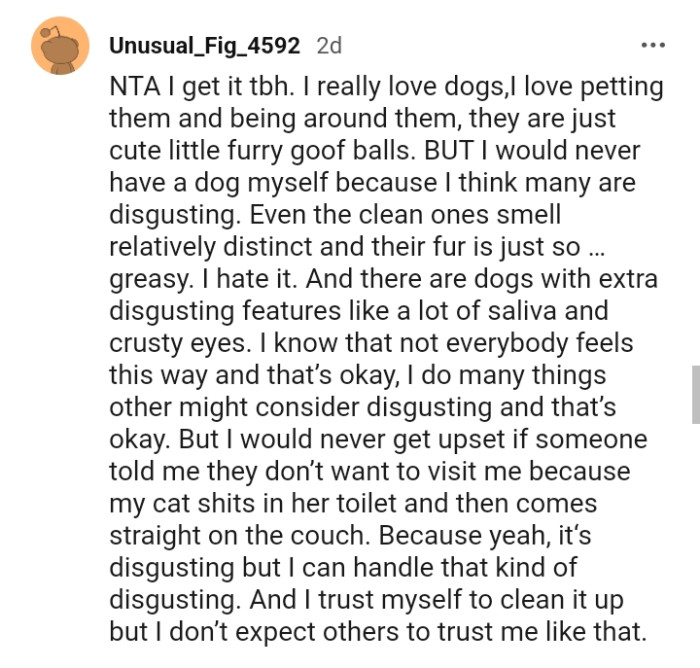
Not everyone is going to love an ill-trained dog
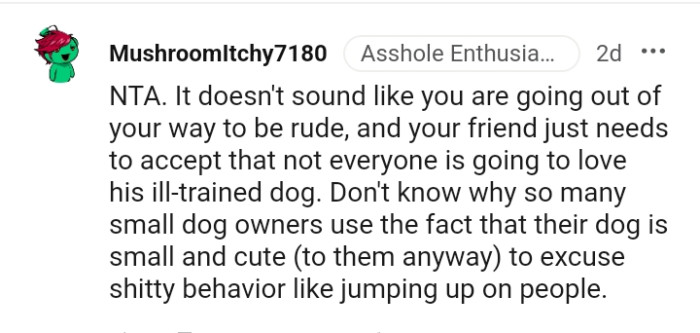
He needs to train his dog

The dog is obviously a sweet dog
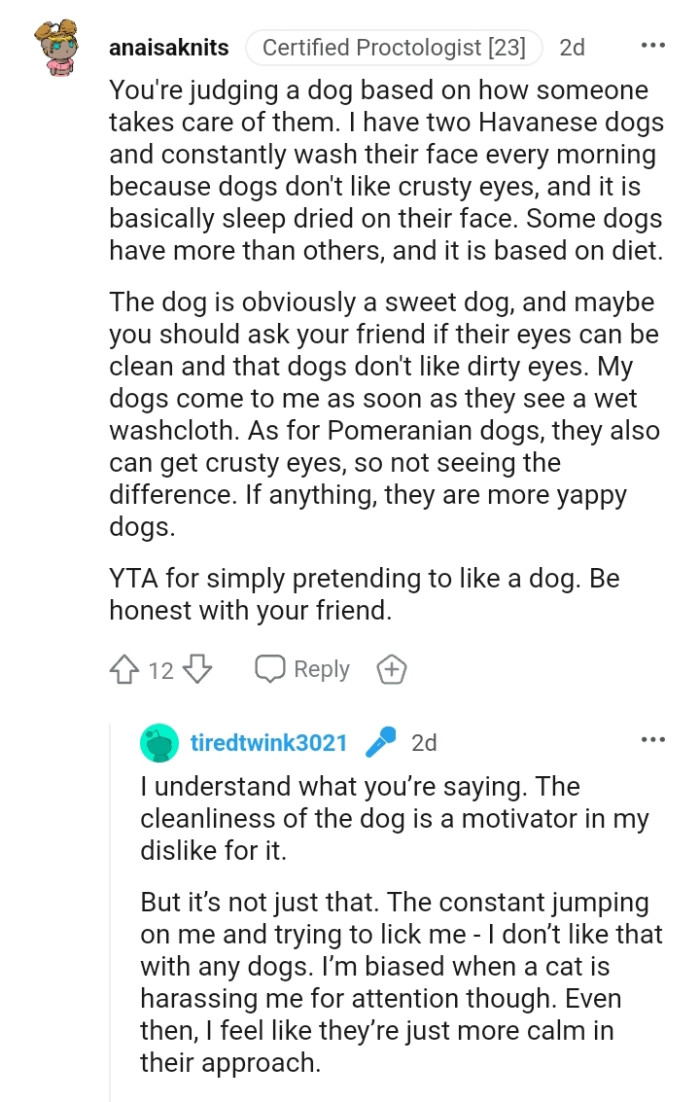
Dogs eat weird things and lick themselves
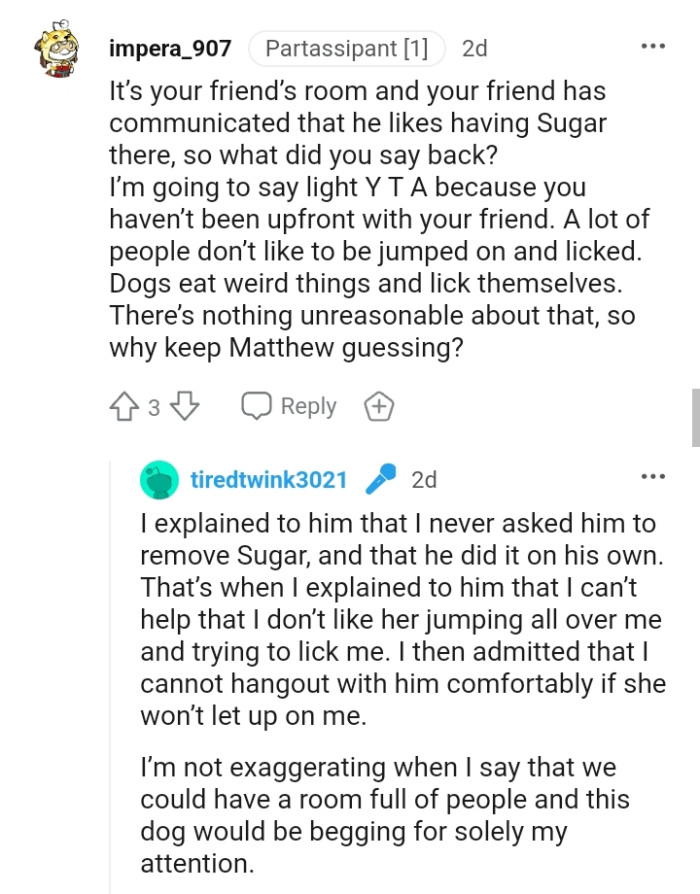
I'm not comfortable with dogs trying to lick me
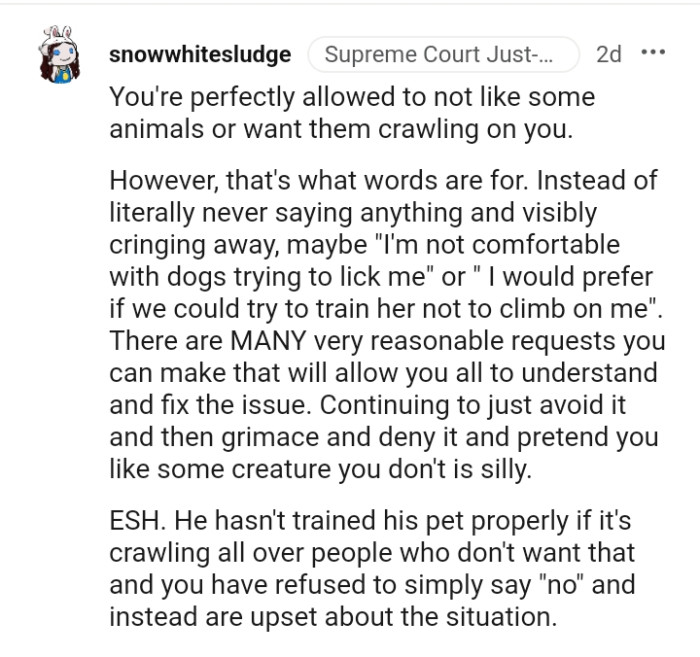
It's a pretty normal part of dog ownership
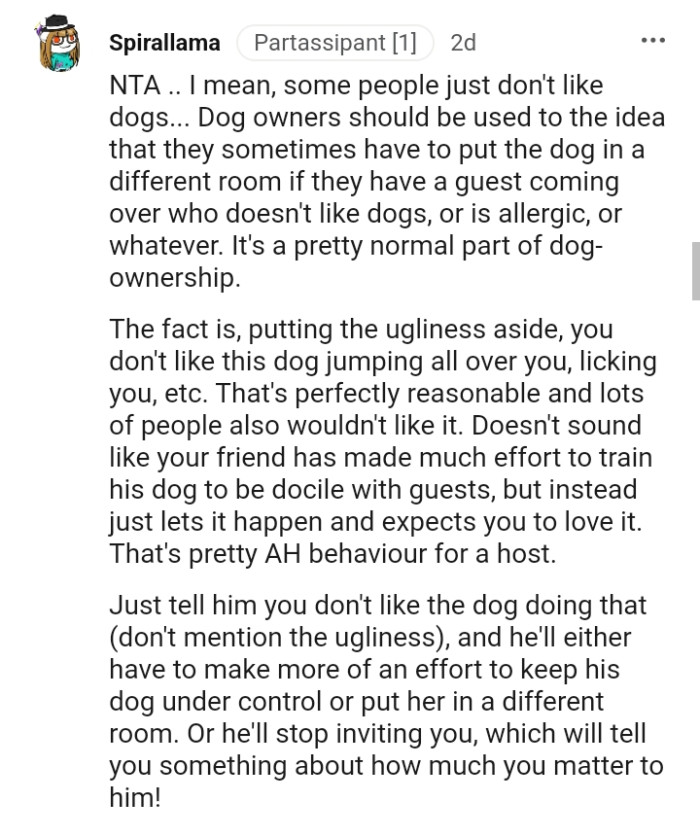
You are disgusted by them nevertheless

He can tell by the faces the OP makes
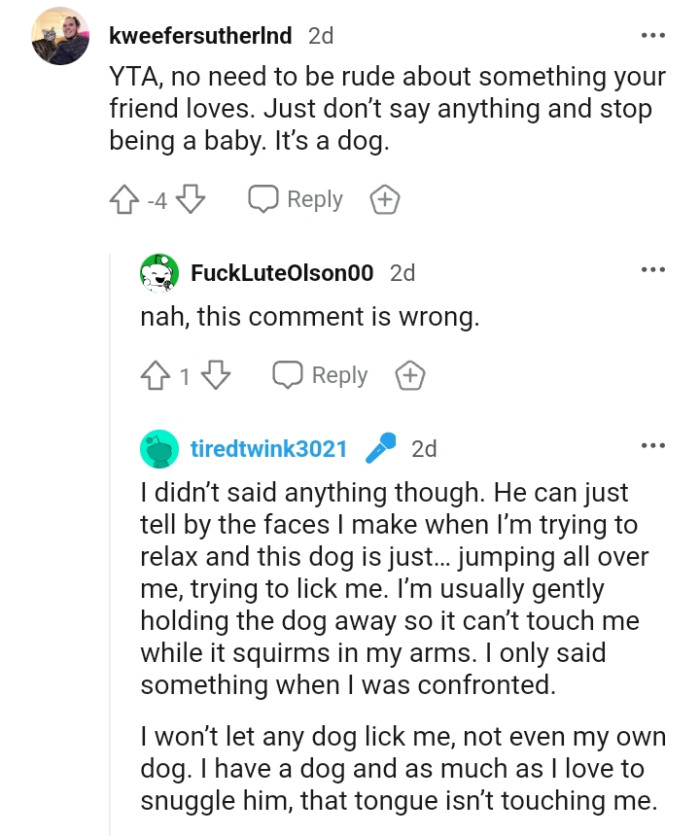
While experiencing disgust has been shown to have advantages, it can also be harmful. Unfortunately, most societies promote avoiding particular groups of people because they are viewed as physically or morally repulsive.
This can serve as a catalyst for dehumanizing and degrading other people. Share your thoughts about this story below.
Psychological Analysis
This scenario underscores the importance of examining our emotional reactions critically. Feelings of disgust are often not just about the animal itself but reflect deeper societal biases and personal experiences.
Encouraging open dialogue about these feelings can lead to greater understanding and compassion towards all breeds.
Analysis generated by AI
Analysis & Alternative Approaches
Emotional responses like disgust can often be reexamined through a psychological lens. According to studies from the American Psychological Association, understanding the influence of cultural narratives and personal experiences can help individuals reshape their feelings toward animals. By fostering empathy and emotional flexibility, we can cultivate a more compassionate society for all living beings.



